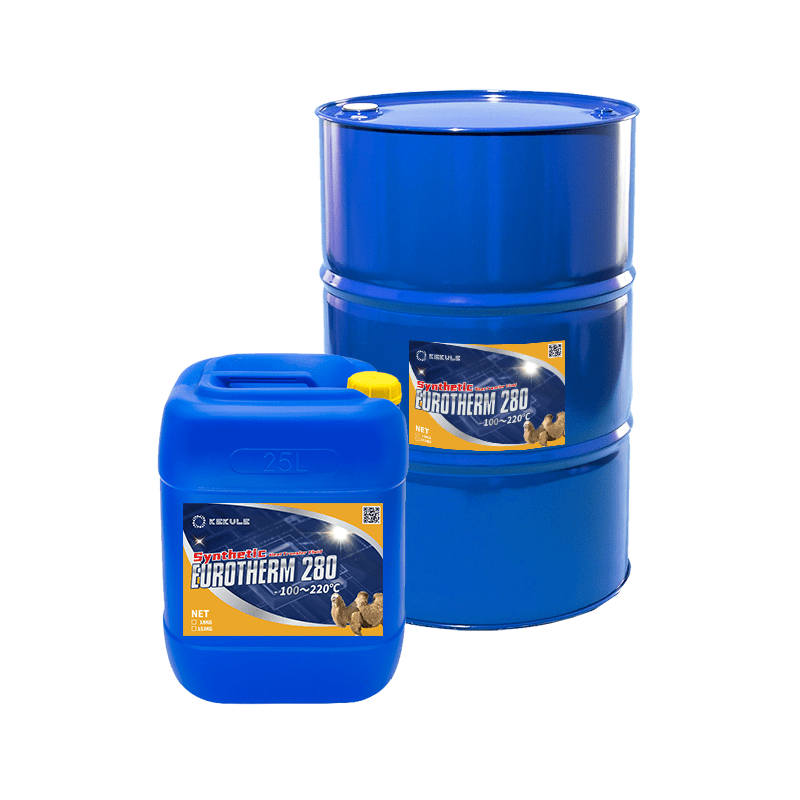Heat Transfer Fluid: Essential for Enhancing Industrial Heating and Cooling Solutions
Heat Transfer Fluid: Essential for Enhancing Industrial Heating and Cooling Solutions
Blog Article
The Duty of Heat Transfer Liquid in Enhancing System Efficiency and Safety
In the ever-evolving landscape of industrial processes, heat transfer liquids (HTFs) arise as crucial parts in maximizing both system efficiency and security. These specialized liquids, understood for their remarkable thermal conductivity and controlled viscosity, enable efficient warmth exchange, which is indispensable for structured procedures.
Comprehending Heat Transfer Liquids
Warm transfer fluids, frequently considered the lifeline of thermal administration systems, play a critical duty in controling temperature throughout various commercial applications. These fluids are crucial in processes where heat must be either soaked up or dissipated to preserve optimum operating conditions. Industries such as chemical handling, power generation, and manufacturing count on warm transfer liquids to make sure tools operates efficiently and securely. By assisting in the transfer of thermal energy, these fluids aid in avoiding getting too hot, thus lengthening the lifespan of equipment and minimizing downtime.
The choice of a proper warm transfer fluid is important to the success of a thermal administration system. In summary, a detailed understanding of warm transfer fluids is important for optimizing system performance, making certain functional safety and security, and accomplishing cost-effective thermal management remedies.
Trick Feature of HTFs

The particular warmth capability of an HTF marks the amount of heat energy required to alter its temperature, influencing exactly how efficiently the system can react to temperature level variations. The boiling and freezing factors of HTFs also play an essential role, particularly in systems revealed to extreme temperature levels, guaranteeing liquid stability and avoiding phase adjustments during procedure. Additionally, the chemical stability of HTFs under differing thermal problems is important to stop degradation and prolong fluid life. Compatibility with system products is necessary to prevent rust and product deterioration, making certain long-term operational dependability. These properties collectively notify the choice of an ideal HTF for details industrial applications.
Enhancing System Performance
To enhance system efficiency with warmth transfer fluids (HTFs), it is important to integrate an extensive method that considers both fluid homes and system style. The selection of a suitable HTF is critical, as its thermal conductivity, viscosity, and details warm capability straight affect the effectiveness of warm exchange. High thermal conductivity guarantees fast warm transfer, while optimal thickness assists in smooth flow through the system, reducing energy intake. Furthermore, a high specific warmth capability allows the liquid to store and move even more thermal energy, boosting total system efficiency.
Equally essential is the design of the warm transfer system look at more info itself. The surface area and material of warm exchangers ought to be enhanced to optimize warmth transfer performance.
Boosting Operational Safety
Guaranteeing operational safety in heat transfer systems requires a meticulous concentrate on both the homes of heat transfer fluids (HTFs) and the design and upkeep of the whole system. HTFs have click now to have thermal stability, low flammability, and appropriate viscosity to minimize threats such as leakages, fires, and system breakdowns. Selecting the right HTF is essential as it determines the system's capacity to take care of temperature fluctuations without endangering safety and security.
The layout of the system must include redundancies and fail-safes to take care of possible hazards effectively. This includes the combination of safety valves, stress alleviation tools, and temperature level tracking systems to identify and resolve anomalies promptly. Normal upkeep is critical to make sure that all elements, consisting of pumps, pipes, and seals, are functioning properly and are without wear or deterioration, which might lead to hazardous leaks or failings.
Additionally, personnel in charge of the operation and upkeep of heat transfer systems need to be adequately educated in safety and security procedures and emergency situation reaction treatments. Constant training programs and safety try this out and security drills can substantially reduce the probability of accidents, making sure a more secure working atmosphere. Inevitably, an extensive technique to safety-- including liquid selection, system style, and labor force training-- is vital for optimal functional protection.
Market Applications of HTFs
Widely made use of throughout different fields, warmth transfer fluids (HTFs) play a critical role in boosting the effectiveness and integrity of thermal administration systems. In the chemical industry, HTFs are important for keeping exact temperature levels throughout reactions, ensuring item consistency and quality. They help with warm exchange processes in reactors, condensers, and heat exchangers, therefore maximizing energy use and reducing waste.
In the oil and gas industry, HTFs are employed in both upstream and downstream procedures. They take care of temperature in exploration operations and enhance efficiency in refining processes by giving steady thermal conditions. This leads to decreased downtime and enhanced safety and security, especially in vital operations such as distillation and fracturing.
The renewable resource industry also benefits substantially from HTFs, particularly in focused solar power (CSP) plants. Below, HTFs transfer caught solar energy to power generators, enabling efficient electrical power generation. The pharmaceutical industry depends on HTFs for exact temperature control in both synthesis and storage, ensuring item effectiveness and security.


In addition, the food and beverage sector makes use of HTFs for pasteurization, sterilization, and food preparation processes, enhancing both item safety and manufacturing effectiveness. Throughout these markets, HTFs serve as crucial elements in keeping ideal functional performance and safety and security.
Final Thought
Warmth transfer fluids are essential in enhancing industrial system performance and security by using high thermal conductivity, optimal thickness, and thermal security. Appropriate option and maintenance of HTFs improve warmth exchange efficiency, consequently improving functional effectiveness. The low flammability of these liquids is essential for decreasing dangers and making certain safe operations. Comprehensive employees training and regular maintenance additionally sustain the reliability and effectiveness of commercial procedures, solidifying the vital duty of HTFs in varied applications.
Report this page